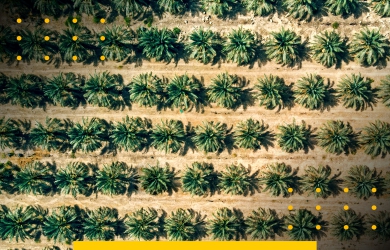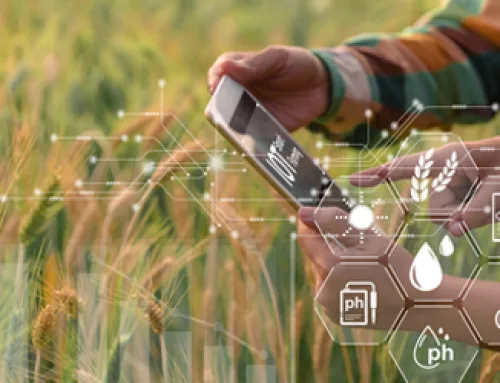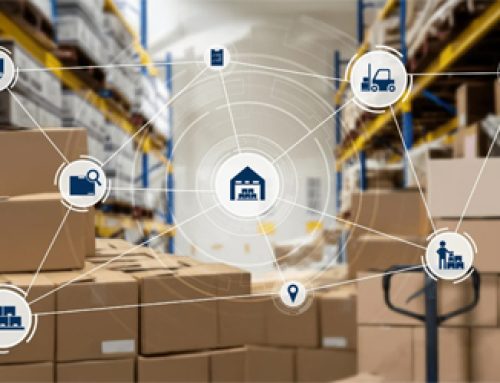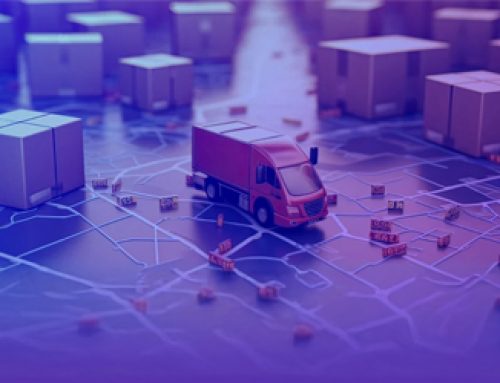Agritech in the Middle East: Key to Innovation-led Digital Disruption
Today, the agriculture industry is in the nascent stage of yet another revolution. As both established and new agriculture technology (agritech) companies begin to crack the code of future food supply, we look into the potential for technology-based agricultural transformation in the Middle East.
Despite geopolitics and international conflicts dominating the headlines, the Middle East is still home to millions of people. This primarily causes an unprecedented rise in the demand for food. But the region continues to experience several tailwinds as the arable land and water grow scarcer and the need to depend on international markets for staple foods increases.
Why is Farming Difficult in the Middle East?
Agriculture is one of the most important economic sectors of the Middle East. However, limited resources and high environmental costs of traditional agriculture in the unfavourable desert environment continue to present significant challenges. That is why the agriculture sector contributes just 13% to the region’s economy.
Existing vulnerabilities in the region’s agriculture and food systems could be heightened unless mitigating actions are taken immediately. The demand and supply shocks followed by increased freight costs and the high price of internationally traded food commodities post the COVID-19 outbreak have also become bottlenecks in recent times.
Agritech in the Middle East can be instrumental in addressing these challenges and helping the industry flourish. With the rise of artificial intelligence, machine learning, Internet of Things (IoT), analytics, sensors, and other potential technologies, much more sophisticated digital tools have come to the fore that can deliver the next productivity leap.
Smart Agritech Solutions to Address Water Scarcity Problems
Water scarcity as well as poor management of water resources is a major constraint of agriculture in the Middle East region. According to the World Resources Institute, 33 countries could face extremely high water stress in 2040, with Bahrain, Kuwait, Qatar, United Arab Emirates (UAE), and Palestine ranking first.
Agritech in the Middle East can be a promising solution to the water scarcity concern, delivering intelligent and more-resilient agriculture methods. AI has recently been making significant strides in improving water efficiency in both greenhouses and fields. Connected-irrigation and nutrient-distribution equipment based on AI and IoT help adjust water and nutrient application, thereby ensuring the efficient use of water resources.
On-field sensors to deliver imagery from remote corners of the fields and aerial imagery can also assist farmers in identifying areas that are being under-watered or over-watered. Moreover, countries like the UAE are investing in drone technology to force precipitation via laser beams to trigger desired rainfall for agriculture.
Hydroponic and Vertical Farming Come to Grips with Limited Arable Land
The increasing urbanisation with high population density in the large metropolitan areas is contributing to rising agricultural land issues in the Middle East. Additionally, the repercussions of overreliance on oil production and extreme temperature conditions in the region are devastating, leading to the degradation of arable lands.
Given the limited arable lands and hostile climate for food production, agritech in the Middle East has to be the only plausible way for agribusinesses to produce high-quality food. Hydroponics and vertical farming in high-tech greenhouses are making headway in the Middle East’s agriculture industry.
With advancements in indoor farming, agritech companies can make use of land in and around urban areas to reduce food miles and improve crop quality considerably. Agritech in the Middle East can thus ensure the supply of fresh and good quality crop produce to consumers through hydroponic growing.
AI and ML Algorithms Mitigating Food Insecurity Concerns
In arid countries where there is minimal rainfall and no permanent lakes or rivers, the vulnerability of food crisis has been acutely felt for decades. And, the global pandemic has increased the fears over food security in the Middle East that imports the majority of its food.
Although agritech advancements are improving agriculture prospects, there needs to still be an upsurge in ventures related to agritech in the Middle East to improve food security. AI and machine learning in agriculture should be the key areas of these ventures, training powerful algorithms on vast datasets to enhance the efficiency and performance of conventional farms.
Relying on agritech in the Middle East and pushing for more ethical and sustainable farm practices to improve food security can also influence investment in a solid connectivity environment. With the UAE government’s National Food Security Strategy 2051 in place to achieve zero hunger, drone farming and autonomous farming machinery are also likely to gain high momentum in the Middle East.
Precision Agriculture to Ensure Effective Resource Management
Agriculture is indeed one of the most resource and labour-intensive industries, with farmers struggling to efficiently estimate water and resource requirements, planting times, and soil temperature levels. The COVID-19 pandemic and its consequent restrictions in mobility have further intensified these challenges across the globe, and the Middle East is no exception.
People working in farming communities, especially in the Middle East, are most susceptible to extreme weather conditions. AI robotics including crop harvesting robots along with AI drones are set to improve the working conditions of farmers while increasing production.
AI and IoT-based precision agriculture methods can help farmers in diagnosing soil conditions, managing field operations, and conducting crop production practices at the right time to achieve optimum productivity. Agritech in the Middle East is thus expected to emerge as a key to agricultural transformation by playing a crucial role in eliminating water scarcity and food insecurity problems.
Ray of Hope – Governments are Waking Up to the Benefits of Agritech
With the COVID-19 crisis adding to the existing issues of climate change, agritech in the Middle East has become imperative to reach the region’s food security goals. This includes scaling up tech-oriented farming, innovating sustainable food production solutions to unlock investment opportunities. Thus, understanding the precepts of agricultural transformation, agritech in the Middle East is growing as governments are directing their focus towards technology solutions.
In GCC (Gulf Cooperation Council) countries, especially the UAE, the governments are currently strengthening their collaboration with private businesses and startups to be at the forefront of the large-scale agritech movement. For instance, in November 2021, the Abu Dhabi Investment Office (ADIO) invested US$ 100 million (AED 367 million) in agritech companies to develop next-gen agriculture solutions in what’s considered to be one of the hottest and driest regions.
Agritech in the Middle East is thus on the cusp of a revolution and the road ahead for the region’s agriculture sector looks bright and promising. FarmERP, having delivered agritech and farm management solutions across the world and with several successful implementations in the Middle East, can be a great digital partner to enhance your agribusiness initiatives in the region. Contact us to know more about what our ERP platform offers and how it can benefit you.




Can you be more specific about the content of your article? After reading it, I still have some doubts. Hope you can help me.
Your point of view caught my eye and was very interesting. Thanks. I have a question for you.